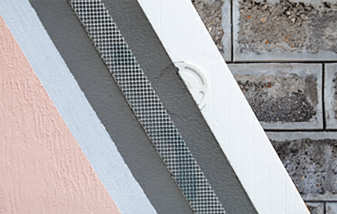
nóv . 15, 2024 05:02 Back to list
mortar bonding additive
Understanding Mortar Bonding Additives Enhancing Performance and Durability
In the construction industry, achieving optimal bonding between materials is crucial for ensuring the integrity and longevity of structures. One key element that has emerged as a game-changer in this domain is the mortar bonding additive. These additives are specifically designed to enhance the adhesion properties of mortar, enabling it to bond more effectively with various substrates. This article explores the significance of mortar bonding additives, their types, benefits, and applications.
What Are Mortar Bonding Additives?
Mortar bonding additives are chemical agents added to mortar mixtures to improve their bonding capabilities. They can either be liquid additives mixed with water or powder forms integrated into the dry mortar. These additives modify the physical and chemical properties of the mortar, improving its adhesion and making it more resilient in various environmental conditions.
Types of Mortar Bonding Additives
There are several types of bonding additives available, each serving distinct purposes
1. Polymer-Based Additives These are among the most commonly used bonding agents. They consist of latex or acrylic polymers that enhance flexibility and adhesion. By forming a film, they allow the mortar to maintain its bonding strength even when subjected to movement or thermal variations.
2. Synthetic Resins These additives improve water resistance and durability, making them ideal for exterior applications. They help prevent issues such as efflorescence, which can adversely affect aesthetics and structural integrity.
3. Adhesion Promoters These chemical compounds are specifically designed to enhance the bond between the mortar and substrate materials. They can be highly effective in ensuring that mortar adheres well to surfaces that are typically challenging for standard mixes, such as non-porous substrates.
4. Mineral Additives Some formulations incorporate silica fume or fly ash, which can enhance the bonding properties of mortar through pozzolanic reactions. These minerals improve the strength and durability of the hardened mortar.
Benefits of Using Mortar Bonding Additives
Incorporating mortar bonding additives offers numerous advantages
mortar bonding additive

- Enhanced Bond Strength The primary benefit of these additives is their ability to increase the bond strength between the mortar and the substrate, which is essential for the durability of constructions.
- Improved Workability Many bonding additives improve the workability of mortar mixes, making them easier to apply and finish
. This can significantly reduce the effort required during installation.- Resistance to Environmental Factors Mortar additives provide better resistance to moisture, freeze-thaw cycles, and other environmental stressors, which is especially important in regions with extreme weather conditions.
- Versatility They can be used in various applications, including bricklaying, masonry, and stonework, making them a versatile choice for different types of projects.
Applications of Mortar Bonding Additives
Mortar bonding additives find applications across a broad spectrum of construction projects. They are particularly useful in
- Exterior Facades Enhancing the bonding of mortar in cladding and facade systems, ensuring long-lasting adhesion to various materials.
- Rehabilitation Projects In restoration work, where new mortar layers are applied over old substrates, bonding additives ensure effective adhesion and stability.
- Tile Installations In tile setting, these additives can significantly improve the bond between tiles and the substrate, preventing issues like cracking and delamination.
- Masonry and Brickwork They enhance the strength and durability of masonry joints, contributing to the overall integrity of brick structures.
Conclusion
Mortar bonding additives represent an essential innovation in the construction industry, significantly enhancing the performance and durability of mortars. By improving adhesion and providing resistance against environmental factors, these additives ensure that structures stand the test of time. As the construction landscape continues to evolve, the use of such additives will likely become increasingly prevalent, driving advancements in building practices and materials. Understanding their properties and applications can lead to more successful construction outcomes and long-lasting results.
-
Unlocking the Benefits of HPMC Products: A Gateway to Versatile Applications
NewsAug.07,2025
-
Unleashing the Potential of HPMC Ashland: A Comprehensive Look
NewsAug.07,2025
-
Tile Bonding Cellulose: The Key to Superior Adhesion and Durability
NewsAug.07,2025
-
Hydroxypropyl Methylcellulose Powder: The Versatile Component in Modern Pharmaceuticals
NewsAug.07,2025
-
Hydroxyethyl Cellulose: The Versatile Solution for Various Industries
NewsAug.07,2025
-
Hydroxyethyl Cellulose (HEC): The Versatile Polymer for Various Applications
NewsAug.07,2025







